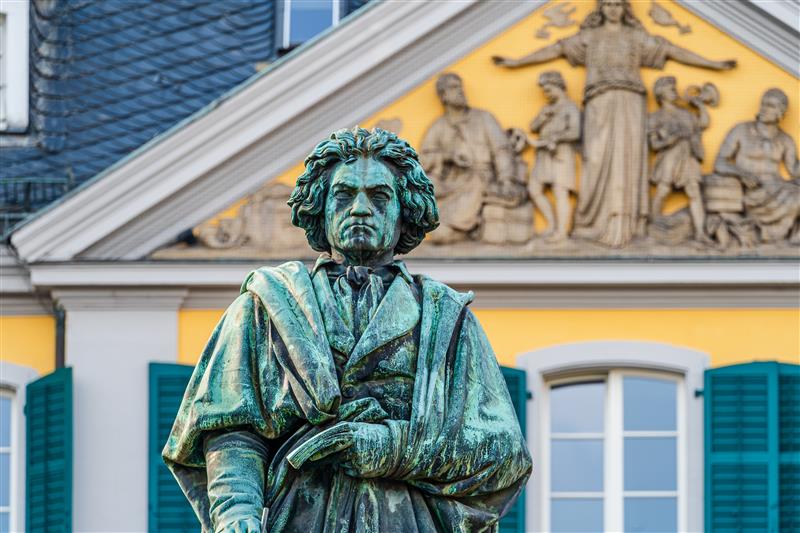Beethoven: Revolution and Upheaval
By: Noel Morris

- In 1792, Francis II became Holy Roman Emperor. He convulsed at the very mention of revolution (French Revolutionaries guillotined his aunt Marie Antoinette in 1793). Francis blanketed Vienna with censors, spies, and secret police. He prohibited talk of liberal ideals. Amid the crackdown, 22-year-old Beethoven left Bonn, crossed through Napoleon's army, and settled in the Austrian police state.
- As a child of the Enlightenment, Beethoven fervently believed in liberty, equality, brotherhood, science, and the power of reason to solve problems. In government, his ideals aligned with the (then) popular notion of enlightened despotism—an absolute ruler must act in the interest of his people, support education, the arts, freedom, and the separation of church and state.
- In Vienna, you could scarcely swing a powdered wig without hitting a musician. Nevertheless, the city had no standing orchestra for public concerts. Stability for a professional musician meant working as a servant. Members of the high nobility kept orchestras in-house and devoted hours to mastering their instruments. The dawn of the 19th century brought change: Beethoven saw a rapid decline in private orchestras as nobles ran out of money. A rising middle class offered an eager and promising alternative. And Beethoven broke with the convention of trying to serve; he wrote music to follow his muse and worried about profit later.
- Napoleon invaded Vienna twice, in 1805 and 1809. In 1806, he broke the nearly 1,000-year stronghold of the Holy Roman Empire and forced its dissolution. The diminished Francis II became the first Austrian Emperor, Francis I. As all this went down, Beethoven wrote music in a nearby flat, working on his Violin Concerto, the Appassionata Sonata, the Fourth Piano Concerto, the Razumovsky Quartets, and the Fourth and Fifth Symphonies.